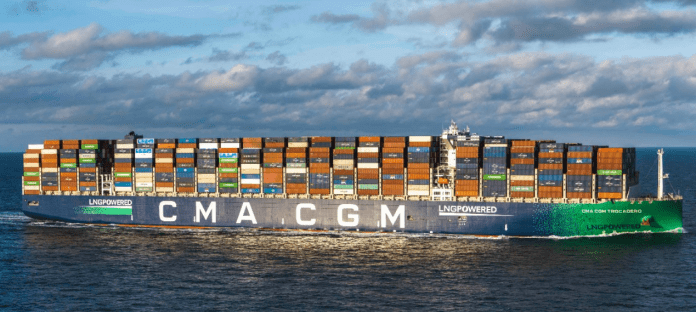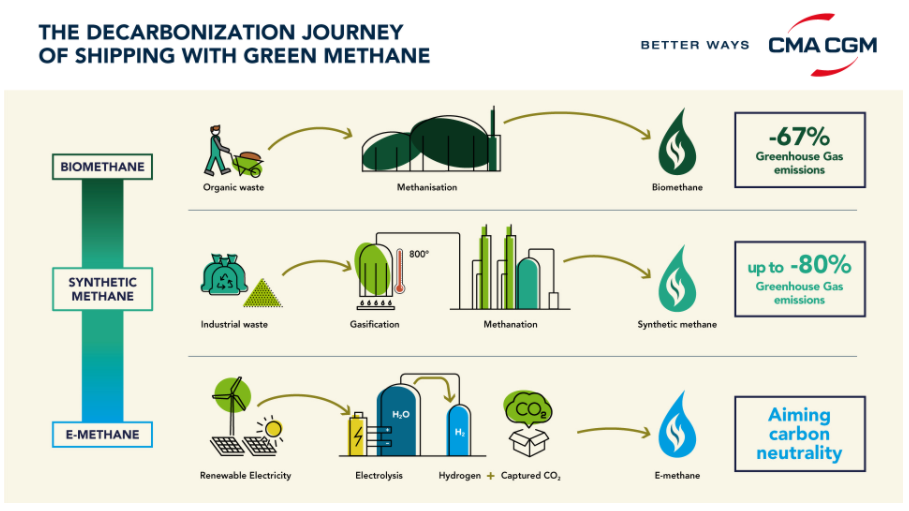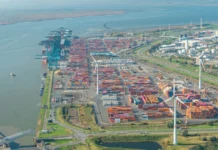
CMA CGM Group and the energy company ENGIE have established a long-term strategic and industrial partnership to proceed with the energy transition in the shipping industry by accelerating the industrial-scale production and distribution of synthetic methane and liquefied biomethane (BioLNG).
Biomethane can reduce greenhouse gas emissions by 67% compared to VLSFO (Very Low Sulfur Fuel Oil) on a well-to-wake basis in the entire value chain, while synthetic methane is anticipated to significantly eliminate greenhouse gas (GHG) emissions.
An initial project to produce BioLNG for shipping has already been launched by both groups at the Port of Marseille, in partnership with Métropole Aix-Marseille-Provence and TotalEnergies, according to a statement.
The two partners are also investing in research and development (R&D) with their industrial associates in order to find the energy sources of the future to enable the decarbonisation of the shipping sector.
In addition, the partnership covers the analysis of future regulations, as well as efforts to raise awareness of the benefits of BioLNG and synthetic methane as a marine fuel.
Furthermore, CMA CGM will have the possibility to invest in further synthetic methane production industrial projects by ENGIE which will harness various technologies, such as pyro-gasification or methanation using green hydrogen and captured carbon dioxide (CO2).
It is also expected that through their partnership, both parties will facilitate the sharing of knowledge and R&D work, most notably in technologies such as carbon capture and green hydrogen production, in order to ensure the durability of the industry.

Liquefied natural gas (LNG) can reduce sulfur oxide emissions by 99%, fine particle emissions by 91% and nitrogen oxide emissions by 92%, according to a report.
The CMA CGM Group currently accounts for 20 ‘e-methane ready’ vessels equipped with dual-fuel engines and running on LNG while it is projected to possess 44 ‘e-methane’ vessels by the end of 2024.
Therefore, the French company is expected to cut overall carbon emissions by 4% in 2020, following on from a 6% reduction in 2019. Since 2008, CMA CGM noted that it has lowered its carbon emissions per container-kilometer by 49%.
The CMA CGM Group and ENGIE have been working together for several months as part of the Coalition for the energy of the future launched in late 2019 at the Assises de l’Économie de la Mer conference by Rodolphe Saadé and supported by French President Emmanuel Macron.





